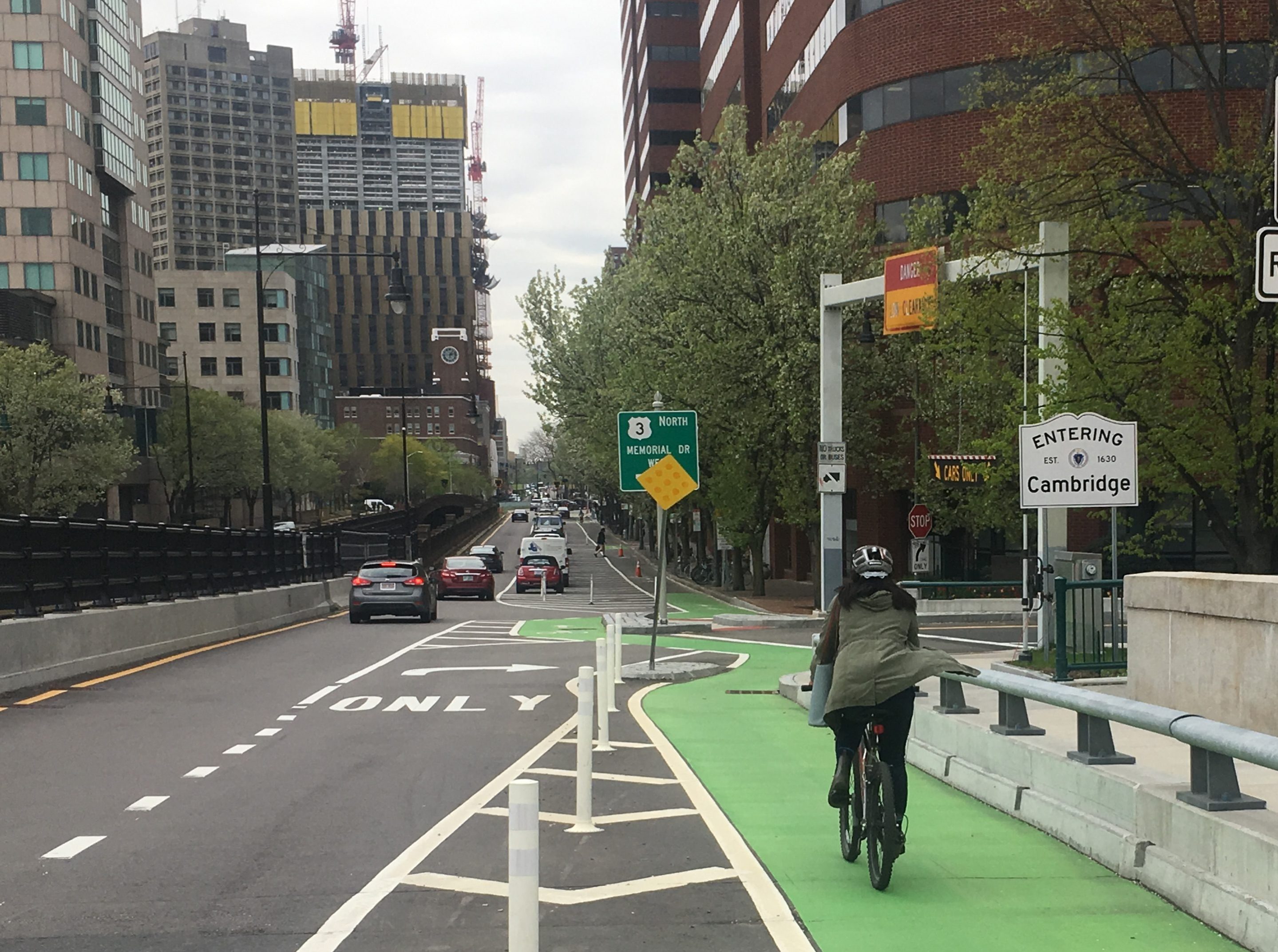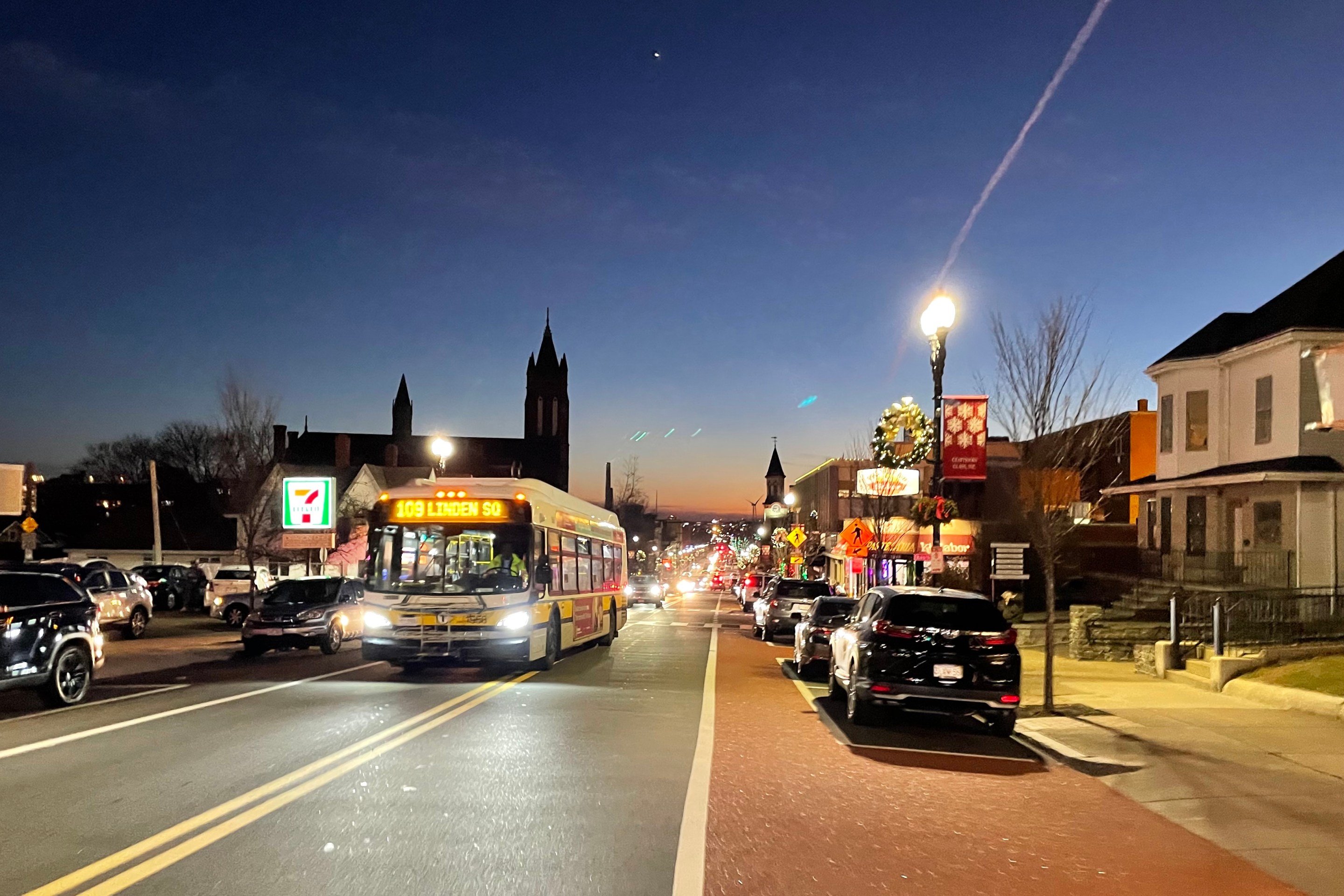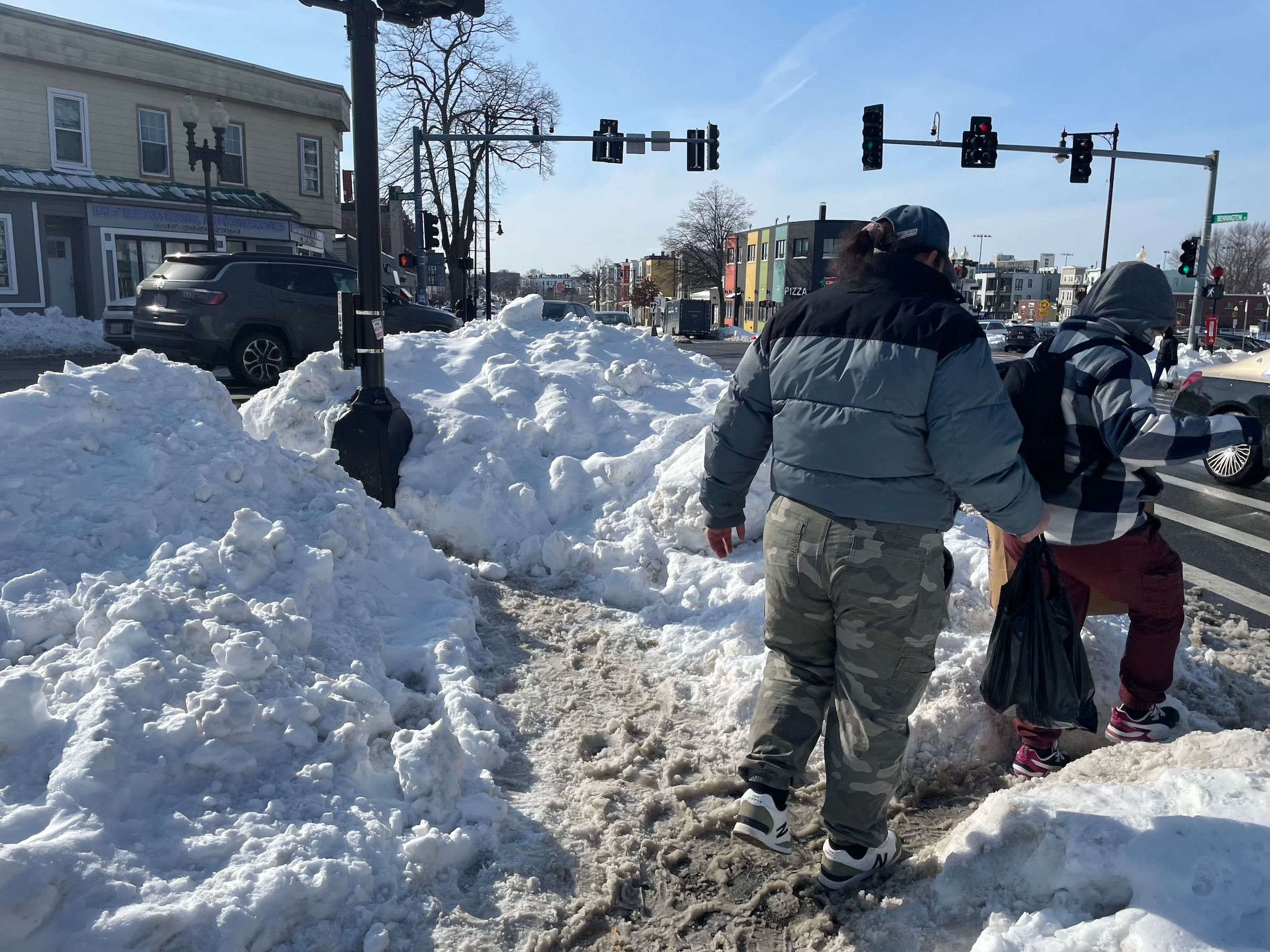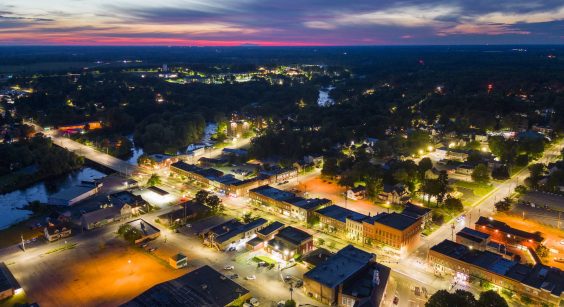A month after Cambridge passed its "Cycling Safety Ordinance," which requires barrier-protected bike lanes to be included whenever the city reconstructs a street in the Cambridge Bicycle Plan network, New York City council speaker Corey Johnson and a group of District of Columbia city councilors are pushing like-minded bills in their respective cities.
New York: the "Vision Zero Design Standard"
Compared to Cambridge's new ordinance, New York City's "Vision Zero Design Standard" bill takes a much broader approach to street safety, but it's also less prescriptive: protected bike lanes are only one design element mentioned in the bill, and the bill gives engineers more leeway to leave those design elements out of their projects, as long as they document their reasons for doing so.
If passed, the New York City law would require city engineers to establish a checklist of street safety upgrades - including dedicated bus lanes, re-timed traffic signals and pedestrian safety islands, among other things - and apply those design standards in arterial street reconstruction projects.
But New York's bill also appears to give engineers more leeway in opting out of those safety improvements. The bill states that "for each arterial street design project subject to such checklist, the department (of transportation) shall state which street design elements have been applied, and if an element has not been applied, a specific reason for not applying such element" (read the full text of the bill here).
Washington: the "Mandatory Protected Cycling Lane Amendment Act" and the "Vision Zero Omnibus Amendment Act"
Washington, D.C. has been a hotbed of street safety activism this spring, after drivers, in separate incidents, killed prominent cycling advocate Dave Salovesh and Adbul Seck over the course of a single April weekend.
The city's elected officials are responding with several pieces of legislation focused on infrastructure and driver behavior. A "Mandatory Protected Cycling Lane" bill, introduced by City Councilor Mary Cheh with the support of a majority of her colleagues, would, as Cambridge does, require the city to build protected bike lanes anytime it undertakes major construction on a city street that's in the city's bike network plan.
A second bill, the "Vision Zero Omnibus" bill introduced by Councilmember Charles Allen, takes a broader approach, and would require city construction projects to include infrastructure upgrades to improve both safety and transit equity. It would also ban right turns on red throughout the District, and introduces more enforcement tools against illegal parking in bike lanes and crosswalks.
Could it work in Boston?
At a City Council hearing on the Boston Transportation Department's budget proposal on May 7, many of the council members present asked Chief of Streets Chris Osgood about accelerating safety improvements to key corridors in their districts.
Osgood made it clear that while his department is staffing up to do more of these projects, they still require a time-consuming degree of public outreach to manage drivers' suspicions of traffic calming efforts.
An ordinance like Cambridge's could help in that regard. In a Streetsblog interview earlier this month, Cambridge Mayor Marc McGovern explained that the new law removes some of the controversy surrounding safe streets projects.
"It was often controversial," said McGovern. "The conversation was, 'Will we or won’t we install a bike lane?' What we’re moving to is, we are going to [build a bike lane]. The question is now, ‘How do we do it, and how do we minimize negative impacts?' … [The new law] took that ambiguity off the table so now people know, yes, we’re doing it. Stop arguing, ‘Will we/won’t we?’ and start having conversations about how do we do it most effectively.”
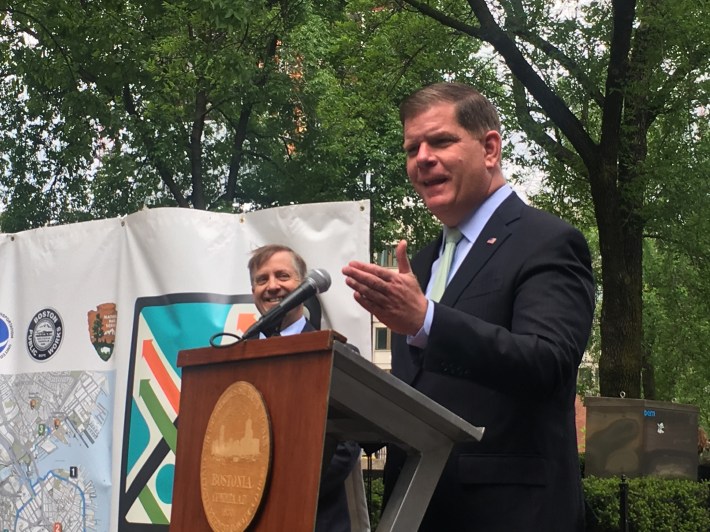
On Thursday afternoon, Boston Mayor Marty Walsh was cutting the ribbon on the "Connect Historic Boston" project – another example of a high-quality street safety improvement that took years to complete. In a brief interview with the press, StreetsblogMASS asked whether Cambridge's ordinance could be replicated in Boston.
"I don't think we need legislation," the Mayor answered.
"Every year we’re making more and more investment in our budget in complete streets, with dedicated bike lanes, better pedestrian crossings, with the work that has to happen underground as well," said Walsh. "We’re also adding $5 million of new revenue in the budget this year through parking meter fines, we’re dedicating that money.”
